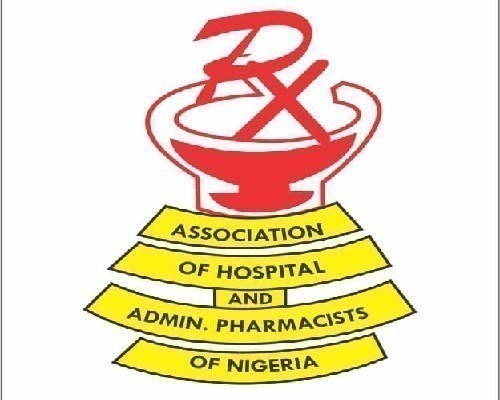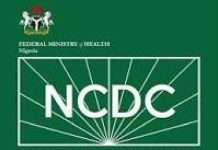-Lists Factors Impeding Progress of Pharmacy Practice

Pharmacists under the umbrella of Association of Hospital and Administrative Pharmacists of Nigeria (AHAPN) have called on Nigerians to cast more votes of confidence in pharmacists, by absolutely relying on them for all their drug-related matters, as obtainable in other climes. They made this remarks on the occasion of the World Pharmacists Day 2021, a global event, established by the International Federation of Pharmaceutical (FIP), celebrated every 25 September.
The hospital pharmacists also seized the opportunity to reveal myriads of challenges limiting the profession from occupying its pride of place in the healthcare sector, as they seek government urgent intervention and political will in resolving most of these professional issues in the country.
In a statement signed by AHAPN National Publicity Committee, on behalf of the association, it accentuated the crucial roles of pharmacists in the healthcare space, as they are one of the key healthcare professionals, saddled with the mandate of training and developing highly skilful manpower, who are licensed experts in the areas of drug discovery, production, distribution, storage, dispensing safe use of drugs and other activities. It is globally acceptable that Pharmacy is the most accessible healthcare profession when compared with others. The profession has relevant and defined roles in multifaceted areas like the industries, academia, community, hospitals, research and development fields.
The committee, headed by AHAPN National Publicity Secretary, Pharm. (Mrs) Zainab Alabi, further justified the essential functions of pharmacists, as the recent COVID-19 pandemic glaringly precipitated the potentials and indispensable roles of the pharmacists, saying many pharmacies stood in the gap as they remained the only freely accessible and viable options where the patients could access treatment, when most hospitals restricted their services to the treatment of COVID-19 patients.
According to her: “Today, Pharmacy profession through the pharmacists is providing a special type of care popularly known as pharmaceutical care, especially in the hospital settings. In the hospitals and other places, the profession is responsible for production, reception, distribution and dispensing of both medicines and medicine- related Information. It is also involved in evaluating the validity and safety of drug prescriptions, monitoring, evaluation and follow-ups of medicine- related treatments.
“These drugs are otherwise knowns as poisons that could harm, kill or heal patients depending on their usages. That is why there is a general saying that multitudes of deaths or harm could result whenever a pharmacist makes a single mistake, but only a soul could be lost whenever another healthcare professional makes same single make.
“A single mistake by a pharmacist could result in a batch error that could affect thousands of lives. There are also documented evidences in US that a person is 10 times more likely to suffer an injury from a drug prescription error than from road traffic accidents, suicide and poisoning put together”, she maintained.
The AHAPN PRO did not fail to compare global pharmacy practice with what obtains in the country, stating that Pharmacy as a profession, has gained such an enviable level of recognition, respect and trust in countries like US that signed into law the “OminiBus Budget Drug Reconciliatory Act” which makes it duty-bound for the pharmacists to provide compulsory drug-related information and counselling to patients on drugs as their right. This is to ensure that drugs are rationally used since they are poisons.
She further mentioned the indispensability of services provided by Pharmacy, as a profession, which prompted many countries like US, UK, Canada, etc to grant the pharmacists the prescriptive rights as well as appointing them as pharmacist consultants.” In some countries like the US, Pharmacy profession has rendered so much an enviable services that their clinical pharmacists are specially recognised as clinical investigators who audit all drug-related activities in the health care settings.
Alabi also acknowledged the assiduous efforts of Nigerian pharmacists, in terms of their position contributions to the general wellbeing and healthcare of the masses amid many challenges. The hospital pharmacists are providing highly skilled and professional services in areas of providing cost-effective, available and easily accessible drugs. Also drug- related information and counselling, hospital drug production, pharmacy ward rounds to ensure rational drug use, pharmacovigilance services, poison management services and a host of others.
“In recognition of these services, the Nigerian government recently endorsed the appointment of pharmacists as pharmacy consultants in all the government public hospitals. Pharmacy as a profession has and is doing much in Nigeria, especially in community, industry, research and academia. The community pharmacies are providing the most accessible care to the masses at the grassroots in the areas of provision of cost- effective drugs, storage, education of patients on health issues, health advocacy, screening of patients to identify potential patients at risk for referrals, etc”, she noted.
Despite all these giant strides being made by pharmacists in enhancing the health of Nigerians, she pointed out that there are a lot of misconceptions and real challenges battling the profession. A sizable portion of Nigeria citizens still see the pharmacist as a ” semi or mini doctor” whose professional roles could be substituted by other healthcare professionals .
She said these misconceptions are mainly due to the high level of ignorance, poverty and illiteracy in the country. Again, due to some level of politics in the health sector, the profession is almost being relegated to the background while this could easily be seen in the poor and pathetic working conditions and welfare of hospital pharmacists in most of Nigerian public hospitals in the country.
Aside this, she called the attention of the Federal Government of Nigeria to urgently stem the negative tide in the hospital settings through intervention to eliminate other challenges rocking the profession which include: inadequate pharmacy staffing, stagnation of pharmacists, obsolete offices and complete absence of patients’ private counseling rooms, poor welfare packages, refusal by some institutions to implement the pharmacy consultancy cadre, artificial creation of “Out of Stock Syndrome” due to diversion of Drug Revolving Fund, denial of pharmacists from accessing patients’ medical records and entry into the wards, etc.
She observed that all these have created a lot of lacuna in the health-seeking behaviours and attitudes of the public towards seeking and acknowledging pharmaceutical care services.” Due to politics in the health sector and government lack of will, there still exist the monstrous ” open drug markets “and other unauthorised drug outlets that are aiding and abetting the circulation of fake and substandard drugs in Nigeria. All these have led to the “nose- diving” of our health indices and our poor global ranking in the league of nations. Except there is timely intervention, this may persist”.










